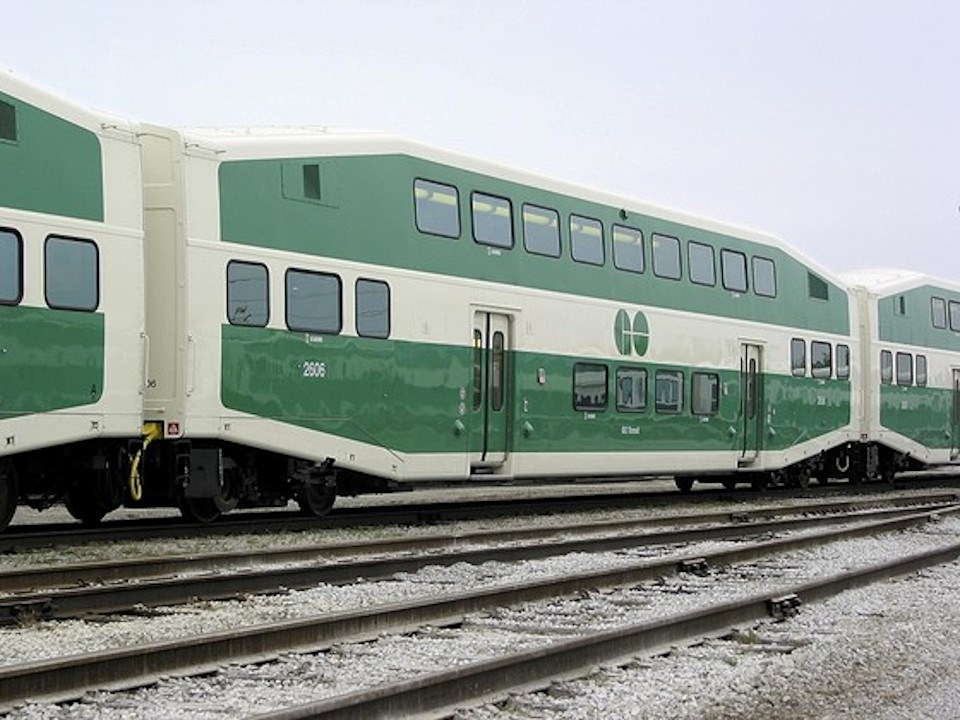A deal to refurbish 94 bi-level GO Transit rail coaches will provide work for 200 workers over two to three years at Thunder Bay's Alstom manufacturing plant.
Ontario Minister of Transportation Caroline Mulroney announced the contract Nov. 30 alongside executives from Alstom and Metrolinx, the crown corporation that oversees transit in the GTA and Hamilton, including GO Transit.
She said the deal to refurbish the coaches in the same factory where they were originally manufactured was both "good for transit and good for Thunder Bay workers,”
The deal will be worth $171 million, with delivery of the refurbished GO coaches expected to begin in 2023 and conclude in 2024.
Along with an deal inked in May to build 60 new TTC streetcars at the plant, that will guarantee around 400 jobs here over the next two years, said Alstom Americas president Michael Keroullé.
He said the deal would help maintain a “critical mass” of workers and activity at the plant, bolstering its efforts to secure larger contracts.
“You need a certain number of people and a certain level of activity to sustain the plant," he said. "With the level we’ve reached with these two contracts, we are at critical mass, meaning we can really start to look forward.”
Unifor Local 1075 president Dominic Pasqualino said the deal offered a "bridge" to a more sustainable future, allowing the plant to retain skilled workers, many of whom have been laid off and some of whom are set to lose their seniority within the next year.
“A lot of them probably are working somewhere else already,” he said. “Hopefully the job here at Alstom will be a better job, and they’ll be willing to quit the job they’re at.”
Pasqualino, who has been laid off twice for about a year each time himself, said the facility needs to get out of that cycle.
"When the numbers go down, then there are opportunities for some of our key workers to work at other places, whether it’s in a mine or in other communities," he said. "The skill set that’s required to build trains is quite complicated. Once we have them trained, I’d like them to stay and finish their careers here. That’s what I’m hoping for, is to build some stability.”
While he welcomed Tuesday's announcement, he called it more of a stop-gap measure to keep the plant alive than an investment that would secure its future.
That future could instead hinge on a large order for the construction of TTC subway cars, which Pasqualino expects will be decided in the coming year, and could involve as many as 400 units. He was confident Alstom's Thunder Bay plant will be a front-runner for the contract, but said the decision can't come soon enough.
“Unfortunately, it takes a long time to set up for subway cars – you have to purchase all the parts, you have to get the jigs in place," he said. "So even if it was signed as early as today, it’s not going to start for a year or two after that. So really, a two-year bridge is just barely getting you to the other side of the river."
“We really need to be working with the politicians now, with Alstom, and the [transit] agencies and try to get something signed as soon as possible.”
Pasqualino said he's largely looking to Ontario transit services for meaningful orders, with the Buy America plan and domestic production incentives in Quebec drying up other possibilities.
The Alstom plant, formerly owned by Bombardier, currently employs about 500 people, less than half of its peak workforce.
– TBNewswatch




